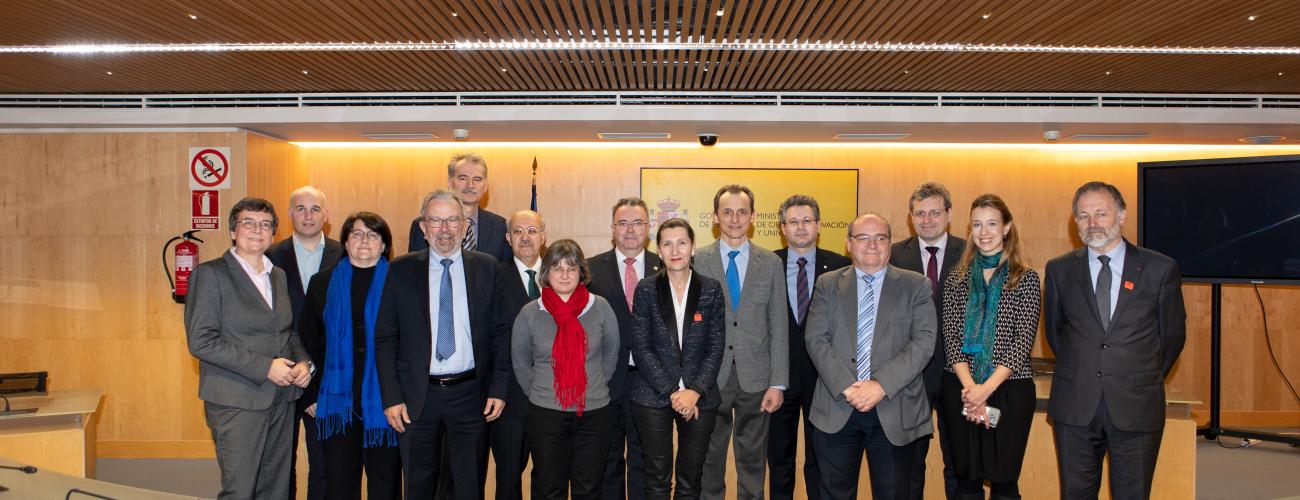
4 ParisTech's schools take part in European University EELISA
Technology universities – Universidad Politécnica de Madrid (Spain), Budapesti Műszaki és Gazdaságtudományi Egyetem (Hungary), Universitatea Politehnica din București (Romania), İstanbul Teknik Üniversitesi (Turkey), Friedrich-Alexander-Universität Erlangen-Nürnberg (Germany) - and four French engineering schools belonging to ParisTech – Chimie ParisTech, École des Ponts ParisTech, ENSTA ParisTech, Mines ParisTech – join their forces to create the European Engineering Learning Innovation and Science Alliance (EELISA). They signed the future mission statement of their Erasmus+ proposal for a European University on 29th January in Madrid.
After more than twenty years relationships within the ATHENS network, EELISA partners are willing to show the way to bring 170,000 students and their staff closer together toward a European Engineering Degree and to disseminate their experience in education linked to industry and research, tackling societal challenges. ENAEE (European Network for Accreditation of Engineering Education) brings as associate partners its unique experience in European cooperation in the sector.
Welcomed by Pedro Duque, Spanish Minister of Science, Innovation and Universities, rectors and directors of the EELISA partners met in Madrid on 28th and 29th January to create the European Engineering Learning Innovation and Science Alliance, called EELISA. They discussed and signed the document describing their long-term strategy.
EELISA will contribute to solve societal challenges empowering students’ citizenship participation and employability raising, aligning the universities strategy with the Sustainable Development Goals. EELISA will be a consolidator for European Union values progress in general and a major demonstrator for higher education institutions in all sectors within the European Higher Education Area and beyond.
The importance of EELISA also lies in its commitment to gender balance as a prominent cause for the entire Europe, but also specifically in STEM careers. Engineering vocations have started to decrease in Europe before women had equal opportunities to access those careers when they had more social and wage compensation. That is a situation that this alliance is determined to change and to improve.
EELISA will encourage and support mobility for students in engineering, academic and administrative staff and enhance linkages between education and society through industry. Students employability will be enhanced, particularly as well as inclusiveness and gender equality. First focussing on the master level, the partners will develop their cooperation also at bachelor and PhD level.
EELISA partners are eager to deepen their cooperation within the European Higher Education Area and the European Research Area.

